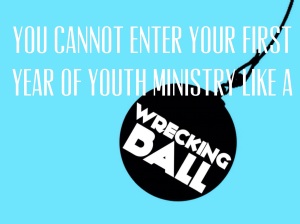 Since October 21, 2015 was “Back to the Future Day,” a lot of people were reflecting on why we did not have all the inventions that were shown in Back to the Future‘s imagined 2015. Of course, some posts also noted the inventions we do now have that were correctly predicted or perhaps, inspired by the movie. (So, I stand corrected: apparently thanks to Nike, we will have self-tying shoes.) Whatever the case, I am going to offer my opinion that we do not have most of these inventions simply because we determined we had better things to do with our time.
Since October 21, 2015 was “Back to the Future Day,” a lot of people were reflecting on why we did not have all the inventions that were shown in Back to the Future‘s imagined 2015. Of course, some posts also noted the inventions we do now have that were correctly predicted or perhaps, inspired by the movie. (So, I stand corrected: apparently thanks to Nike, we will have self-tying shoes.) Whatever the case, I am going to offer my opinion that we do not have most of these inventions simply because we determined we had better things to do with our time.
We often determine we have better things to do with our time, so we rarely take the time to pray and fast.
In order to be effective, prayer has to be the first thing we do, not the last.”
This is a quote from Eugene Peterson. I retweeted it mid-July, but it keeps replaying in my mind.
It may seem unproductive to gather together in prayer for an hour each Friday. But I think it is also the most productive I can be with my time.
When I was appointed to serve as the interim pastor, one of my board members asked me, “How will you be able to continue all that you are currently doing?” When I was appointed, it was agreed that I would continue as the youth pastor. I was on track to graduate seminary in May 2016, so I made the decision to keep my current full-time class load. I told her, “Well, I guess I will have to get really good at time management.”
As I think about how to be the best steward of my time, I can think of no better way to spend my time than beginning with prayer. I need to remain centered on God. My focus can easily shift because my mind is always thinking about the next thing, so I need to constantly refocus my attention on God. And if I am being totally honest, I am not always great at doing that.
While I fast each year during Lent, I am not a model faster. The first year I fasted something for Lent, I failed multiple times before I gave up altogether. We don’t fast so people can look at us and think, “Wow, they sure are holy.” Despite the difficulty, fasting is worth it. Fasting requires us to intentionally go without something for a particular period of time. Fasting teaches us that we are not in control of our lives. Fasting enables us to reset our lives around sustainable, life-giving practices. That is why each Friday, we are gathering at church to fast and pray.
 Prayer and fasting is one of those things we can’t afford not to do. That double negative is there simply to say, we need to do this. People were already gathering on Thursday mornings to pray; our church is already available for anyone to come during the day Thursdays to pray. Why another time to gather and pray? My question is: can we really gather and pray too much? That is rhetorical, of course. “How did we start doing this prayer and fasting on Fridays?” someone asked.
Prayer and fasting is one of those things we can’t afford not to do. That double negative is there simply to say, we need to do this. People were already gathering on Thursday mornings to pray; our church is already available for anyone to come during the day Thursdays to pray. Why another time to gather and pray? My question is: can we really gather and pray too much? That is rhetorical, of course. “How did we start doing this prayer and fasting on Fridays?” someone asked.
Maybe it started because I knew my church was in the midst of pastoral transition, and I knew we had to seek God’s will. Maybe it started with the picture of Aylan. Maybe it started with the Refugee crisis. Maybe it started with a missionary coming to our church asking if we would be willing to give our lunch. Maybe it started the first time I prayed for God to break my heart for what breaks God’s heart. You know, I don’t know how it started. I simply know we must pray.
Maybe prayer doesn’t feel like an action enough response to all the brokenness around us. There is more we can do. I recommend this blog post from Ann Voskamp. Here is what I know to be true: I know prayer makes a difference. I have heard stories. I have been the character in stories where the climax has been: prayer worked. Prayer works.
We turn on the news, and we hear about more tragedy. All we see and hear on the news is tragedy. It is all around us. We cannot become numb to it. One way to combat becoming numb is to pray. To recenter and refocus ourselves on God and on God’s calling for us and every one of us. We are called to love and serve God and our neighbor. I need to reset my life around sustainable, life-giving practices.
Will you join me?









